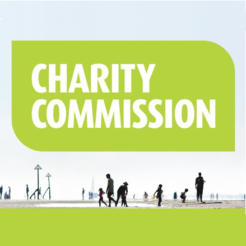Trust in charities remains high, but the public have concerns over charity administration costs and fundraising methods, according to research conducted on behalf of the Charity Commission.
The independent research by Ipsos Mori, based on a randomly selected sample of 1,163 people in England and Wales, found that charities received an average score of 6.7 out of 10, very similar to previous findings in 2012 and 2010, and higher than any other public figures except the police and doctors.
A report into the findings, Public Trust and Confidence in Charities, says that 60 per cent of people think charities spend too much on salaries and administration and 66 per cent find charity fundraising methods uncomfortable, although these are stable compared to previous years.
The number of people who said they would trust a charity to run a public service more than other sectors fell from 25 per cent in 2012 to 20 per cent this year, although most said it would make no difference which sector ran a service.
In its analysis of the findings, the Charity Commission identifies a concern over charity spending and efficiency.
“Increasing numbers of people cite 'ensuring a reasonable proportion of donations gets to the end cause' as the most important aspect of trust and confidence in charities,” the analysis says. “This has grown from 43 per cent in 2012 to 49 per cent in 2014.
“On the other hand, fewer people now cite 'making a positive difference to the cause they work for' as the most important aspect of trust and confidence. This has decreased from 31 per cent in 2012 to 25 per cent in 2014.”
The analysis says there is a “minor downwards shift in attitudes” since last year.
It says there had been a slight decrease in the percentage of people who agree that 'most charities are trustworthy and act in the public interest' which has dropped from 75 per cent in 2010, 74 per cent in 2012 to 71 per cent in 2014. And fewer people trust charities to work independently. This fell from 68 per cent in 2010, to 63 per cent in 2012 and 62 per cent in 2014.
The proportion of people saying they used charity services rose to 40 per cent, up from 34 per cent in 2012, and 9 per cent when the survey was first conducted in 2005.
The survey found that just over half the public had heard of the Charity Commission, but that few had a clear idea what it did. Of those polled, 68 per cent said charities were regulated effectively or very effectively.
The survey also found that the more knowledgeable people were about charities, the higher the average trust score they gave them.
William Shawcross, chairman of the Charity Commission, said: “There are findings that charity trustees need to pay attention to. It is no longer good enough to say that your charity makes a positive difference – the public wants to know that you are making the best possible impact, and that a reasonable proportion of donations is getting to the end cause. The worry is that charities are not always fully trusted to do this.
"There has been a decline in public confidence in charities that provide public services. Their trustees need to consider what is amiss and take action to protect the reputation of the charity.
"It is also troubling to note that two thirds of people still feel uncomfortable about some methods of fundraising. Trustees need to keep in mind how important it is to preserve public goodwill when they are faced with the challenge of raising funds to support the work of their charity.”









